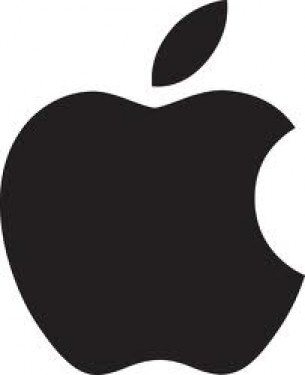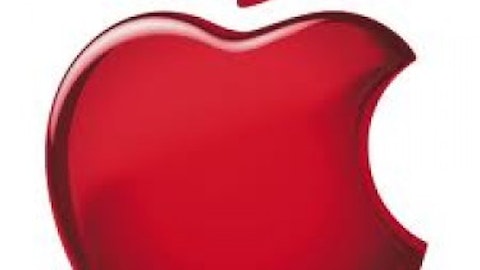This series , brought to you by Yahoo! Finance, looks at which upgrades and downgrades make sense, and which ones investors should act on. Today, our headlines feature higher price targets for big tech companies Apple Inc. (NASDAQ:AAPL) and Texas Instruments Incorporated (NASDAQ:TXN), but it’s …
A downgrade for Take-Two
Shares of video-game maker Take-Two Interactive Software, Inc. (NASDAQ:TTWO) are off more than 5% in early Wednesday trading after analysts at Pacific Crest warned that investor expectations for a new round of video-game console releases have gotten overheated.

Microsoft, Nintendo, and Sony are all coming out with new hardware and, lately, that’s made a lot of investors optimistic about the chances for more software sales from the games makers, as well. Problem is, Pacific Crest worries that expectations will deflate once all the new consoles actually come to market, and investors get a chance to see the sales numbers for the games that will run on them. The analyst is predicting a “correction” in the gaming industry — and sees Take-Two Interactive Software, Inc. (NASDAQ:TTWO) bearing the brunt of it.
Pacific Crest is pulling its outperform rating from the stock, and downgrading to sector perform. Is it right to do so?
Opinions can, and will, differ, but from where I sit, Pacific Crest’s decision looks prudent. Right now, Take-Two Interactive Software, Inc. (NASDAQ:TTWO) shares sell for a lofty 76 times earnings, and a less-expensive sounding, but still pricey, 44.5 times trailing free cash flow. Yet, the consensus of analysts who follow the stock is that — even with a bounce from the release of the consoles — Take-Two Interactive Software, Inc. (NASDAQ:TTWO) is only capable of growing its earnings at about 12% annually over the long term. That hardly seems fast-enough growth to justify a 44x multiple on the stock, much less a 76x multiple. And, with Take-Two paying no dividends either, I just don’t see any good argument in favor of owning the stock at these prices.
Long story short: Downgrading to perform was the least Pacific Crest should have done to its Take-Two Interactive Software, Inc. (NASDAQ:TTWO) rating. Individual investors might want to go a step further, and sell before the news gets worse.
Texas Instruments Incorporated (NASDAQ:TXN) tripped up
In somewhat brighter news, Texas Instruments Incorporated (NASDAQ:TXN) released new earnings guidance yesterday, which showed management more confident that it will exceed the low point on its guidance for this current fiscal third quarter 2013 — but less confident that it will hit the high point of its earlier range.
Management is now predicting it will earn between $0.51 and $0.55 per share on revenues of from $3.15 billion to $3.29 billion. These numbers convinced analysts at FBR Capital to up their valuation on the stock to $36 today… but did not convince the analyst to remove the underperform rating.
Nor should it.
With a 9% projected earnings growth rate, Texas Instruments Incorporated (NASDAQ:TXN) shares cost far more than they’re worth at 22 times trailing earnings. And, even if TI hits its new guidance, and achieves consensus forecasts for $1.94 per share in profits this year, that will still leave the stock selling for nearly 21 times earnings. So there’s really no joy in Texas Instruments Incorporated (NASDAQ:TXN)’s promise that things will work out basically as it planned back when it released Q3 guidance two months ago.
Optimists may note that Texas Instruments Incorporated (NASDAQ:TXN) is a monster cash producer, and generated $2.9 billion in positive free cash flow over the past year — about 40% more than GAAP earnings. But this still leaves the stock trading for about 15 times FCF, and the best I can say about that valuation is that, assuming 9% growth and maintenance of the company’s 2.9% dividend yield, it makes the company look “only” 25% overvalued, and not cheap. On balance, I’d be more inclined to follow FBR’s advice and sell, rather than buy.
Apple Inc. (NASDAQ:AAPL) of the analysts’ eye Apple Inc. (NASDAQ:AAPL) introduced two new iPhone models yesterday, and analysts are applauding, with at least four stock shops — Oppenheimer, FBR, Telsey Advisory, and Canaccord Genuity — all upping their price targets to anywhere from $525 to $600 per share. Investors, however, seem unimpressed.
Apple Inc. (NASDAQ:AAPL) shares are down more than 5% as of this writing, and trading around $465. Should they be?
By all the numbers we can see today, no. At today’s post-announcement prices, Apple Inc. (NASDAQ:AAPL) costs less than 12 times earnings — a huge discount to the 15% earnings-growth estimates that we see projected for it on S&P Capital IQ, and an even bigger discount to the projections for 20% long-term earnings growth shown on Yahoo! Finance.
That’ s before you credit Apple Inc. (NASDAQ:AAPL) for the $25.7 billion worth of net cash in its bank account…
… and before you notice that the company’s $43.2 billion in free cash flow is nearly 15% more than the “earnings” the company is allowed to claim under GAAP accounting standards…
… and before you crunch the numbers, and find that Apple stock is therefore selling for an enterprise value-to-free cash flow ratio of just 9.3.
What all this means is that it’s pretty much irrelevant whether Apple grows its profits at the 15% annual rate that Capital IQ calculates, or at the 20% reported on Yahoo! Finance. At an EV/FCF ratio of nine and change, the stock’s definitely got room to run up to any of the price targets that Wall Street now postulates, and certainly is cheap enough to buy.
The article Wednesday’s Top Upgrades (and Downgrades) originally appeared on Fool.com and is written by Rich Smith.
Fool contributor Rich Smith owns shares of Apple. The Motley Fool recommends Apple and Take-Two Interactive. The Motley Fool owns shares of Apple and Microsoft.
Copyright © 1995 – 2013 The Motley Fool, LLC. All rights reserved. The Motley Fool has a disclosure policy.





